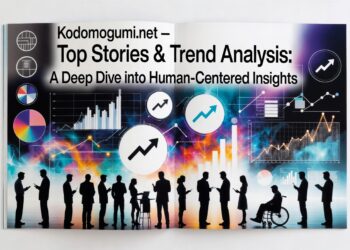Business Intelligence is a group of software tools managers and analysts use to assist in decision-making. Business intelligence may be summed up as the analysis and processing of a lot of data into knowledge-based information that can be used to support sound business choices. Business models, data models, and ETL technologies are all part of the BI Environment, which organizes and transforms data into usable information.
The Advantages of Business Intelligence Tools
While there are many important advantages to using professional BI software and tools, we will only cover the most important ones here.
- They compile all pertinent information:
It’s likely that you aggregate information from a wide variety of sources, including portals, ERPs, CRMs, flat files, databases, APIs, and more, whether you work for a tiny startup or a multinational corporation. A high level of data intelligence is required to effectively manage these many data inputs and derive insights from the data so gathered. That’s why it’s important to make use of up-to-date data connections, which will aid in consolidating various data sources and giving you a bird’s-eye view of all your company’s operations.
In this way, all steps—from problem and trend identification to cross-analysis to decision-making—are tightly linked and grounded in data.
- Their methods of self-service analytics free up previously inaccessible information in the following ways:
When everyone in an organization has access to cutting-edge business intelligence software, they can dig into the data on their own without bothering the IT department for reports. Using a self-service BI model gives businesses an edge since it ensures all employees have access to the data analytics training they need to do their jobs effectively while reducing the IT department’s workload.
- Predictions provide benefits to users by allowing them to:
Data scientists and analysts aren’t the only ones who can benefit from using predictive analytics.
Business users of varying skill levels may now quickly produce insights for future scenarios to aid in changing existing plans to deliver the best potential results thanks to the incorporation of forecast engines.
On the other hand, intelligent data alerts driven by AI protect against anomalies that may arise when you manage massive volumes of data and uncover novel trends and patterns, allowing you to respond instantly should a business condition change. With today’s technology, you may automate routine operations in order to free up time for more important pursuits.
- They make manual labor unnecessary:
As opposed to the infinite rows and columns required by old methods of business management, contemporary software allows for the automation of processes and so reduces the need for such methods.
Get a report, please. Your key performance indicator dashboard will be automatically updated by the tool. Furthermore, reporting can be automated at regular intervals and the results examined in isolation.
Want to give a speech? To construct a robust interactive dashboard that allows you to directly interact with your data, simply drag & drop the variables you want to use. Put those endless PowerPoint presentations to rest and make way for a far more user-friendly method of data examination.
- They save money for companies by:
Business intelligence (BI) tools facilitate quicker planning, analysis, and reporting procedures across a wide range of areas, from sales planning and customer behavior analysis to real-time process monitoring and offer optimization. As a matter of fact, more than half of BI users said these were the most noticeable benefits that helped them cut expenses and enhance revenues, according to the BI survey. Working quickly and precisely allows you to make improvements that are more profitable for your business.
- 24/7/365 availability is guaranteed:
The Software-as-a-Service (SaaS) model offered by these tools will give an end-to-end SaaS BI experience, with all data hosted in a safe online setting, to cater to the varying requirements of different businesses. The program can be scaled up or down to meet the changing demands of a business. Any manager, data scientist, analyst, or consultant can take advantage of the software’s many self-service analytics options at any time, thanks to the cloud storage that keeps the data at their fingertips at all times. Your information is accessible from any modern device with just an internet connection and a web browser.
- They give you an edge over the competition:
Those companies that figure out how to put the mountains of data they generate to good use will have a significant advantage over those that don’t. Business intelligence (BI) solutions provide the know-how and features required to handle business data in a way that drives productivity and expansion. Working with the proper BI software allows businesses of all sizes and in all sectors to make well-considered strategic decisions.
Best Business Intelligence Tools
1. HubSpot
Software for inbound marketing, sales, and service is called HubSpot. With the help of its free CRM software, you can better manage your leads and clients, as well as maintain and grow your relationship with them. Developers and marketers can benefit from its flexible and potent content management system. You may automate operations using its sales software and get deeper insights into prospects. You may operate comprehensive inbound marketing campaigns at scale with the aid of marketing software.
2. Integrate.io
A data integration platform is called Integrate.io. All of your data sources will be combined in one cloud-based solution. A marketing solution with data enrichment features is offered by Integrate.io. Integrate.io will combine your data enrichment tools. You’ll benefit from keeping your marketing automation system current. With Integrate.io, your customer information is always accurate.
Your marketing campaigns will be more effective with Integrate.io. It offers data-driven insights and multichannel marketing. You can use it to construct a comprehensive Sales Analytics solution. It offers capabilities like data enrichment, efficient analytics, a consolidated database, etc. with a sales solution. A customer support analytics solution from Integrate.io offers in-depth insights, data enrichment, specialized help options, etc.
3. SAS
SAS is a proprietary technology that is well renowned for providing the appropriate information to the appropriate people at the appropriate time. It’s a great conduit between users and a wide variety of information repositories. Identification and resolution of security issues aid in the protection of company data. Supports data visualization, centralized metadata, governance, and scalability. It offers real-time analysis and enables self-service reporting for users.
4. Infor Birst
A cloud-based analytics and business intelligence tool called Infor Birst aids in comprehending and streamlining difficult analytical procedures. Birst was acquired by Infor 2017, a multinational corporation with a wide range of software products for particular industries. Infor Birst is a state-of-the-art, all-encompassing system that includes a data warehouse, reporting and visualization platform, and a networked BI approach that is heavily automated and uses machine learning. On Capterra and G2Crowd, customers of the BI vendor gave the program a good 4.1 stars and 3.9 stars, respectively.
5. SAP BusinessObjects
The SAP BusinessObjects business intelligence platform is designed for comprehensive reporting, analysis, and data visualization. The company allows users to connect their on-premises and cloud SAP systems to Microsoft Office’s PowerPoint and Excel for live presentations and the integration of hybrid analytics.
Business categories including CRM and customer experience, ERP and digital core, HR and employee engagement, digital supply chain, and many more are their main areas of concentration. To be precise, SAP is used by more than 170M people worldwide, making it one of the biggest software vendors in the world. The business received a rating of 4.3 stars on Capterra and 3.8 stars with over 200 reviews on G2Crowd, indicating its well-established position in the industry since 1972.
6. WebFOCUS
A unique commercial technology called WebFOCUS delivers the appropriate information to the appropriate user. WebFOCUS provides robust solutions that are straightforward to maintain and compile. Provide information to the business, clients, and management with feature-rich InfoApps. Point-to-click analytics and sophisticated data integration. Features a few well-known programs as well, like InfoDiscovery, RSat, and ReportCaster.
7. Domo
Domo is a business intelligence platform that includes a number of systems, starting with data connectivity and ending with data extension through pre-built and custom apps from the Domo Appstore. Domo can be used in conjunction with R or Python scripts to prepare data for predictive modeling as well as for data lakes, warehouses, and ETL tools.
Like other tools, you may use them to connect the data throughout your organization, take use of their machine learning and artificial intelligence capabilities, and let users independently explore the data.
Even though the company is one of the newest on our list, having been created in 2011, this BI application has a solid 4.2 Capterra stars rating and an even higher 4.4 G2Crowd stars rating.
8. IBM Cognos
The IBM Cognos web-based integrated BI suite is a proprietary product. Effectively gains insights and offers a toolkit for reporting and data analysis. Able to design a dashboard of one’s own and access information anywhere Gives cloud support, complete data governance, and simple online and offline report generation.
The user can access information via mobile devices with the help of the mobile app for the IBM Cognos BI suite.
9. Pentaho
Pentaho is a for-profit open-source platform that primarily focuses on making informed business decisions.
Moreover, this software offers interactive analytics and cloud support. Features a robust navigation interface and data visualization. The platform includes predictive data analytics, data mining, and big data integration. The user can gather and manage data from various dynamic sources using Pentaho, which also assists in transforming big data into insights.
10. Zoho Analytics
Zoho Analytics is a self-service business intelligence and analytics tool. Customers have the option of creating their own intelligent dashboards and conducting visual analyses of any data. Users can ask inquiries and receive intelligent answers in the form of insightful reports thanks to its AI-powered assistant. There are more than 100 ready-made connectors for databases, cloud storage, and common business software. Unified business analytics examines information from numerous enterprise software programs.
11. Maropost
Automate marketing campaigns using many means of communication, including SMS, social media, email, etc. From a single control panel, manage many marketplace stores and information about stock, orders, and clients. To create and maintain good business partnerships, collect information about clients from various stores.
detailed research and reporting on marketing, customer interactions, and online retail performance.
Inbuilt CRM and integrated ticketing system.
12. GoodData
Including tools for data intake, storage, analytic queries, visualizations, and application integration, GoodData is a business analytics platform. According to their website, you don’t need a Ph.D. to integrate their analytics into your website, desktop application, or mobile application, or to build dashboards and reports for your everyday tasks. Also, one of the more recent software products on our list, GoodData, which was launched in 2007, scored a consistent 4.3 out of 5 stars on Capterra and 4.1 out of 5 stars on G2Crowd.
Conclusion
The word “business intelligence” already gives away its core meaning: the artful, strategic enhancement of corporate performance. Due to the expansive nature of the concept of business, the manual method has difficulty fulfilling this essential goal.
Thanks to cutting-edge business intelligence reporting solutions, this process is straightforward and simple.
Business Intelligence platforms may evolve over time in response to shifting market conditions and rapid advances in technology, but they now represent the most efficient means of reaching organizational goals.

















